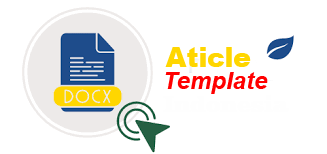Sistem Pendukung Keputusan Pemilihan Server Hosting Dan Domain Terbaik Untuk WEB Server Menerapkan Metode VIKOR
DOI:
https://doi.org/10.30865/json.v2i1.2450Keywords:
Decision Support System, Selection, WEB Server, Best, VIKOR Method.Abstract
Hosting is a place or internet service to make the website pages that you have created online and can be accessed by other people. Meanwhile, Hosting itself is an internet service that provides server resources for rent, allowing organizations or individuals to place information on the internet in the form of HTTP, FTP, EMAIL or DNS. Domain is an identifier string that is used to identify a server such as a web server or mail server on a computer network or the internet for easy access by the user. By using a domain you no longer need to remember the IP address of the server you are going to, because everything has been regulated by the Domain Name Server (DNS) so that the domain you write about will be directly connected to the IP address of the server. WebServer is a software that provides data-based services and functions to receive requests from HTTP or HTTPS on a known client and usually known as a web browser (Mozilla Firefox, Google Chrome) and to send back the results in the form of several web pages and in general. will be in the form of an HTML document.References
T. Limbong et al., Sistem Pendukung Keputusan: Metode & Implementasi. Medan: Yayasan Kita Menulis, 2020.
D. Nofriansyah, Konsep Data Mining Vs Sistem Pendukung Keputusan. 2015.
S. Kusumadewi, S. Hartati, A. Harjoko, and Retantyo Wardoyo, Fuzzy Multi-Attribute Decision Making (FUZZY MADM). 2006.
G.-H. Tzeng and J.-J. Huang, Multiple Attribute Decision Making Method And Applications. CRC Press, 2011.
Y. Kristyawan and A. Rizeki, “Sistem Pendukung Keputusan Distribusi Rehabilitas Sosial Rumah Tidak Layak Huni pada Kab Sampang Menggunakan Metode Vikor,†vol. 2, no. 1, pp. 1–8, 2017.
E. Turban, J. E. Aronson, and T. Liang, “Decision Support Systems and Intelligent Systems.â€
Kusrini, Konsep dan Aplikasi Sistem Pendukung Keputusan. 2007.
Mesran, K. Ulfa, D. P. Utomo, and I. R. Nasution, “Penerapan Metode VlseKriterijumska Optimizacija I Kompromisno Resenje ( Vikor ) Dalam Pengangkatan Guru,†Algoritm. J. Ilmu Komput. dan Inform., vol. 4, no. 1, pp. 265–271, 2020.
M. Yazdani and F. R. Graeml, “VIKOR and its Applications,†Int. J. Strateg. Decis. Sci., vol. 5, no. 2, pp. 56–83, Apr. 2014.
D. Siregar et al., “Multi-Attribute Decision Making with VIKOR Method for Any Purpose Decision,†in Journal of Physics: Conference Series, 2018, vol. 1019, no. 1.
W. Jingzhu and L. Xiangyi, “The multiple attribute decision-making VIKOR method and its application,†in 2008 International Conference on Wireless Communications, Networking and Mobile Computing, WiCOM 2008, 2008.
N. Sutrikanti, H. Situmorang, Fachrurrazi, H. Nurdiyanto, and M. Mesran, “Implementasi Pendukung Keputusan Dalam Pemilihan Calon Peserta Cerdas Cermat Tingkat SMA Menerapkan Metode VIKOR,†J. Ris. Komput. (JURIKOM, vol. 5, no. 2407–389X, pp. 109–113, 2018.
I. Wijaya and Mesran, “Penerapan Metode AHP dan VIKOR Dalam Pemilihan Karyawan Berprestasi,†in Seminar Nasional Teknologi Komputer & Sains (SAINTEKS), 2019, pp. 301–309.
Downloads
Published
How to Cite
Issue
Section
License

This work is licensed under a Creative Commons Attribution 4.0 International License
Authors who publish with this journal agree to the following terms:
- Authors retain copyright and grant the journal right of first publication with the work simultaneously licensed under Creative Commons Attribution 4.0 International License that allows others to share the work with an acknowledgment of the work's authorship and initial publication in this journal.
- Authors are able to enter into separate, additional contractual arrangements for the non-exclusive distribution of the journal's published version of the work (e.g., post it to an institutional repository or publish it in a book), with an acknowledgment of its initial publication in this journal.
- Authors are permitted and encouraged to post their work online (e.g., in institutional repositories or on their website) prior to and during the submission process, as it can lead to productive exchanges, as well as earlier and greater citation of published work (Refer to The Effect of Open Access).




